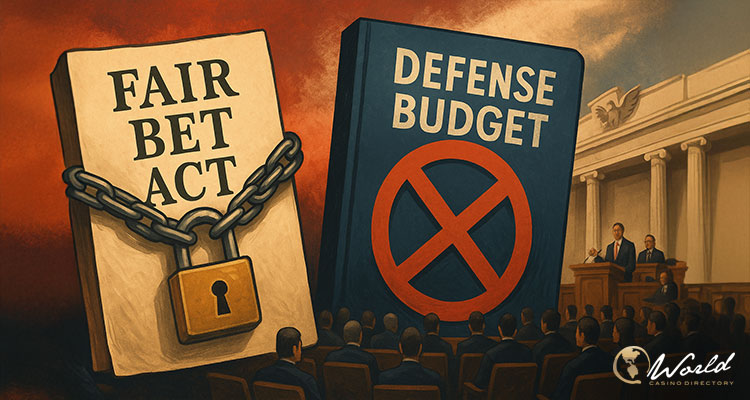Representative Dina Titus of Nevada has once again failed in her attempt to reinstate the full gambling loss deduction, this time through the annual National Defense Authorization Act (NDAA). The House Rules Committee, controlled by Republicans, rejected her proposal to attach the Fair Accounting for Income Realized from Betting Earnings Taxation (FAIR Bet) Act to the 2026 defense spending package.
Titus’ Push to Restore Full Deduction Fails in Rules Committee
Titus, who represents Las Vegas, announced in late August that she would seek to add the measure to the Senate’s version of the NDAA. The goal was to undo a change introduced under the Republican-led “One Big Beautiful Bill” (OBBA), signed by President Donald Trump earlier this year, which limits gambling loss deductions from 100% to 90% beginning with the 2026 tax year.
Under the new rule, if a gambler wins $100,000 but also loses an equal amount, the individual would still face a tax bill on $10,000. “Unfortunately, the GOP-controlled Rules Committee did not accept the FAIR BET Act as an amendment to the NDAA. This was an easy fix that should have been adopted. Nonetheless, I will continue to build support to restore the 100% gambling loss deduction,” Titus wrote on X, formerly Twitter.
For seventy years, U.S. taxpayers had been able to deduct gambling losses fully against winnings. That changed when Republicans folded the revised deduction into OBBA. Critics argue the move unfairly penalizes gamblers by taxing “phantom income,” creating liabilities even when players break even.
The American Gaming Association (AGA) has also condemned the measure. Its president, Bill Miller, said the policy “creates an unfair precedent by taxing phantom income and uniquely penalizing a legal, heavily regulated activity.” Supporters of repeal warn that the deduction cut will push more players toward offshore and unregulated gambling platforms, undermining transparency and consumer protections.
The Joint Committee on Taxation has projected that limiting deductions to 90% will raise about $1.1 billion in federal revenue over the next decade. Some lawmakers have admitted they were unaware of the change when voting on the broader budget bill. As reported by InGame, Senator Chuck Grassley of Iowa, a member of the Senate Finance Committee, told reporters in July, “If you’re asking me how it got in there, no, I don’t know.”
Fallout for Gamblers and Operators
High-stakes gamblers have voiced concerns that the change could make professional play unviable. Casual bettors could also be caught by the rule, as losses no longer fully offset winnings. Titus has emphasized that encouraging players to report winnings through legal operators is critical, but warned the new structure could discourage compliance and drive activity underground. She previously stated the government “should be encouraging players to properly report their winnings and wager using legal operators,” rather than creating incentives to avoid reporting.
The defense bill itself authorizes $924.7 billion in spending, including $878.7 billion for the Department of Defense, which Congress has newly renamed the Department of War. The NDAA regularly attracts unrelated amendments due to its must-pass status, but the Rules Committee declined to include the FAIR Bet Act among the hundreds of amendments advanced this year.
This latest defeat marks the third setback for the FAIR Bet Act. Titus first filed the measure on July 7, sending it to the House Ways and Means Committee. She then sought to add it to the NDAA after her initial push failed. With the Rules Committee blocking the amendment, the FAIR Bet Act remains pending in Ways and Means.
The bill has drawn bipartisan backing, with four Republican and eight Democratic cosponsors. Committee Chair Jason Smith of Missouri has signaled willingness to examine the issue, acknowledging that Senate Republicans inserted the deduction change into OBBA and agreeing the full deduction should be restored.
For now, gamblers and industry stakeholders must wait to see whether Congress will act before the 2026 tax year begins, when the 90% deduction takes effect. Titus has vowed to continue pressing for change, arguing that fairness for legal gambling requires restoring the deduction in full.



